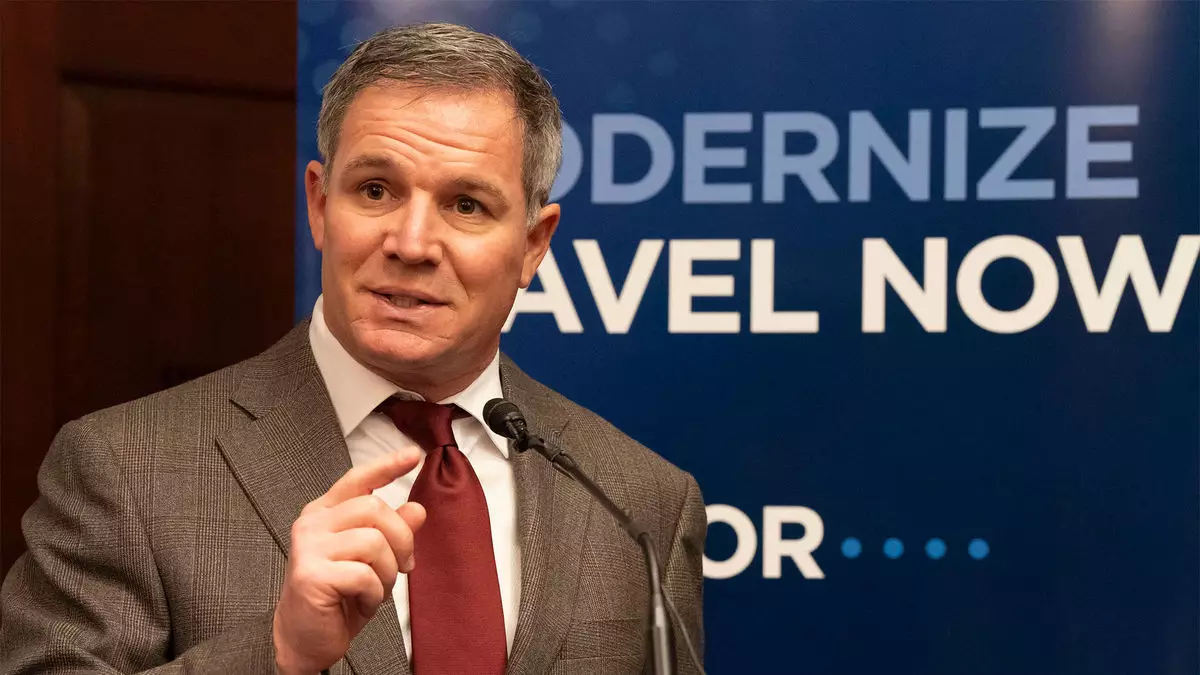As the United States stands on the precipice of an unprecedented influx of international visitors, the potential for positive economic impacts is significant. Events such as the 2026 FIFA World Cup and the 2028 Olympic and Paralympic Games promise to bring millions of guests to American shores, generating an estimated $95 billion in economic activity. However, these forecasts raise urgent concerns about the readiness of the U.S. travel infrastructure to handle such a surge. The U.S. Travel Association has sounded the alarm, highlighting that without substantial modernization efforts, the system might buckle under pressure, frustrating travelers and stifling economic growth.
A recent report from the U.S. Travel’s Commission on Seamless and Secure Travel emphasizes the critical need for prompt action in response to this anticipated traveler influx. The recommendations presented in this report are not mere suggestions; they represent essential steps that need to be taken to ensure that the infrastructure is not only capable of handling increased demand but also enhancing the overall travel experience. Establishing a dedicated task force at the White House to evaluate the broad requirements for accommodating the forthcoming events is a pivotal recommendation that underscores the seriousness of this situation.
Effective solutions require investment in modern technologies and staffing strategies. For instance, expediting visa processing by increasing consular staffing could significantly streamline the entry process for international travelers. Likewise, significant investments in airport screening technology and biometrics systems can drastically reduce wait times and enhance security protocols. The need for adequately staffing customs agents at airports is equally essential, addressing the bottleneck that currently hampers traveler flow.
Geoff Freeman, CEO of the U.S. Travel Association, has been vocal about the exigency of these recommendations, asserting that this moment is a rare opportunity for the government to make transformative changes in how travel operates within the nation. He posits that strategic modernization is not just beneficial; it is paramount to maintaining the competitive edge of the U.S. in an increasingly competitive global travel market.
Moreover, the Commission’s report advocates for a rethinking of current security measures. Some of the high-tech strategies proposed include allowing travelers to pass through security with filled water bottles and larger liquid containers, alongside keeping electronics in bags during the screening process. This innovative approach serves dual purposes: it enhances the traveler experience by minimizing the hassle of security checks while also maintaining rigorous safety standards.
Freeman’s assertion that “the status quo is not an option” reflects a broader recognition that America’s travel infrastructure needs to evolve. With travel demand skyrocketing and the existing systems growing outdated, the U.S. must respond proactively rather than reactively. Implementing these recommendations with urgency will ensure a safer, more efficient, and ultimately more rewarding travel experience for both international visitors and American citizens alike.
The anticipated historic surge in international visitors presents a monumental opportunity for the U.S. economy but also poses significant challenges for its travel infrastructure. Immediate and bold action is vital to modernize air traffic control, enhance airport security, and ultimately transform the travel experience into one that is seamless, secure, and suitably prepared for the future. Failure to act may result in lost opportunities and mounting frustrations for millions of travelers, highlighting the necessity for strategic investment and commitment to improvement in the years to come.


Leave a Reply